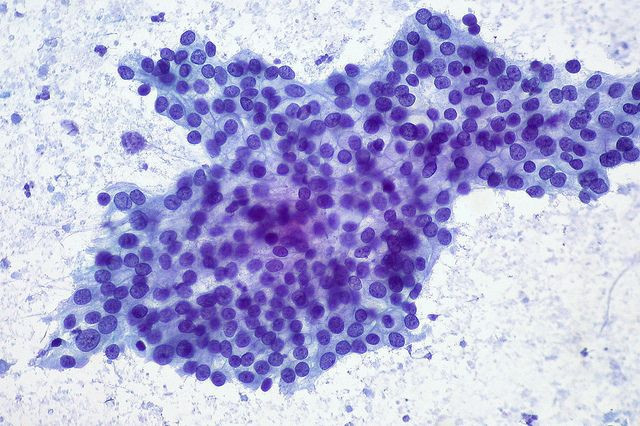Cancer Biopsy Won't Spread Tumors; Data May Be Unconvincing

Among the many “common cancer myths and misconceptions” listed on a webpage of the National Cancer Institute is this one: A needle biopsy might cause microscopic cells from a malignant tumor to break off and spread to other parts of your body. Sounds convincing, but is it true? Intending to address this fear, researchers conducting a study of pancreatic cancer patients found those patients who underwent a tumor biopsy had longer survival rates than those who did not.
This also sounds convincing, yet it does not directly answer the question. Additionally, the researchers analyzed survival rates for what most people undoubtedly see as just a brief length of time. Below are some of the facts (and links), you must decide for yourself.
For the current study, a team of Mayo Clinic researchers examined data gathered on a database following Medicare patients with non-metastatic pancreatic cancer who underwent surgery between the years 1998 and 2009. In particular, the researchers focused on 498 patients who had a biopsy (specifically, an endoscopic ultrasound-guided fine needle aspiration or EUS-FNA) and 1,536 patients who did not have this procedure. Crunching the numbers, the researchers discovered patients with multiple comorbidities — more than one illness — and more recent diagnosis were more likely to receive EUS-FNA. After controlling for various factors, including comorbidity and age, EUS-FNA was marginally associated with improved overall survival, “but did not affect cancer-specific survival.”
Importantly, the follow-up time amounted to just 21 months — less than two full years.
Conflicting Data?
This is not to say biopsies do cause spread of cancer cells, but at least one 2004 study found a correlation between “fine-needle aspiration and an increase in the incidence of sentinel node metastases.” While the two studies cannot be directly compared — one involves pancreatic cancer, the other breast cancer — the methods and analysis involved in both are similar, yet the researchers reach conflicting conclusions.
“Biopsies are incredibly valuable,” Dr. Michael Wallace, a gastroenterologist and senior investigator of the study, stated in a press release. Part of his argument in favor of biopsies is that surgery for pancreatic cancer is "a very big operation," and "most people should want to make sure they have cancer before they undergo surgery."
He notes one study that demonstrates nine percent of patients who underwent surgery because of suspected pancreatic cancer actually had benign disease. Seems the only firm conclusion to draw from these scientific studies is the decision to undergo a biopsy should be weighed carefully.
Source: Ngamruengphong S, Swanson KM, Shah ND, Wallace MB. Preoperative endoscopic ultrasound-guided fine needle aspiration does not impair survival of patients with resected pancreatic cancer. Gut. 2015.



























